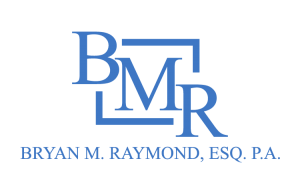Probation is an often-misunderstood concept in Florida criminal law. Probation is a set of conditions a judge can impose on a criminal defendant in lieu of or in addition to a term of imprisonment if a defendant is found guilty of or pleads guilty to a criminal offense. Many judges will use a term of probation in the hopes it will ensure that a criminal defendant behaves him or herself without needing to send that person to jail. When a criminal defendant is placed on probation, he or she is released (or spared) from confinement but is still under the court’s supervision. In other words, probation is much like a trial period for the defendant and the person must be on his or her best behavior while the court monitors the defendant’s conduct.
Although being sentenced to a period of probation is obviously preferable to being sentenced to a term of imprisonment, the particular terms of the defendant’s probation are very important. A criminal defendant’s probation can be revoked, and the defendant sentenced to a term of imprisonment if he or she violates the terms of his or her probation. Therefore, if you have been convicted of a crime in Florida and your sentence includes a period of probation with specific terms, you need to ensure your compliance with those conditions. Not complying with them could result in the sentencing judge revoking your probation and sentencing you to a term of imprisonment for that probation violation.
What is Florida Law Regarding Probation and What Conditions Can a Judge Impose on Me if My Sentence Includes a Term of Probation?
Under Section 948.03. Florida Statutes, Florida judges are authorized to impose probation as a part of any criminal sentence for a criminal conviction in Florida. The statute provides a number of conditions that a judge can consider imposing as terms for any period of probation included as a part of a criminal defendant’s sentence. These conditions can, but are not required to, include (among other things) regularly reporting to a probation officer, maintaining regular, stable employment, remaining within a designated community or area, submitting to regular drug tests, making financial restitution to the victims of his or her crimes, prohibiting the criminal defendant from possessing or owning a firearm, and not associating with anyone engaged in criminal behavior. If the criminal defendant has been convicted of a drug crime and a period of probation immediately follows a period of imprisonment, then the terms of probation must include a requirement that the defendant not consume any drugs or alcohol during the term of probation the judge imposes. A court also is allowed by the same statute to rescind or modify the terms and conditions of a period of probation imposed on the criminal defendant.
What Happens if I Violate the Terms of My Probation?
If a criminal defendant violates the terms of his or her probation, it can lead to the defendant’s arrest . Generally, how the process plays out is that if the criminal defendant’s probation officer finds out a defendant on probation has been arrested, possessed a firearm or violated some other terms of his or her probation, the probation officer can either (i) arrest the criminal defendant in a warrant-less arrest or else (ii) prepare an affidavit detailing the specific probation violation and then submit the affidavit to the sentencing judge. From there, the judge examines the affidavit and if, he or she agrees with the probation officer’s recommendation, the judge will issue an arrest warrant. Once this arrest warrant is issued, the defendant will likely be arrested and held in custody. When this has occurred, the judge will then hold a hearing to determine whether or not to revoke the defendant’s probation. The judge is then free to impose any sentence that he or she might have imposed before placing the criminal defendant on probation or require that the balance of the probation period is served in prison. Therefore, for example, if a defendant was convicted of a crime that carried with it a maximum penalty of two years and he or she served three months in prison followed by one year and nine months of probation, the judge could sentence the defendant to spend an additional one year and nine months or however much is left in the probation period at the time of the violation in prison.
Contact Experienced West Palm Beach Criminal Defense Attorney Bryan Raymond if You Have Been Accused of Violating the Terms of Your Probation in Palm Beach County
Experienced West Palm Beach criminal defense attorney Bryan M. Raymond of the Law Office of Bryan Raymond has experience representing those who have been given probation as a part of their sentence for criminal offense and then are accused of violating the terms of that probation in Palm Beach County. Bryan is very familiar with the laws and procedure giving probation and probation violations in Florida and will work to achieve the most favorable outcome for you if you have been accused of a probation violation. Therefore, if you have been accused of violating a term of your probation in Palm Beach County, Florida, immediately contact experienced criminal defense attorney Bryan Raymond today at (561) 682-1115 or [email protected].
Copyright: skycinema / 123RF Stock Photo






